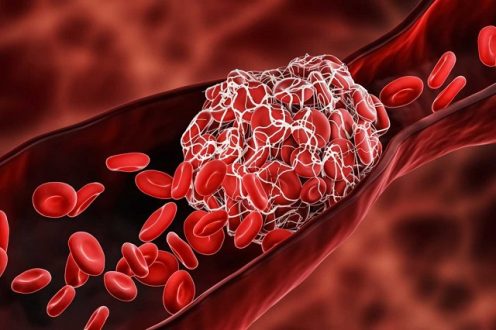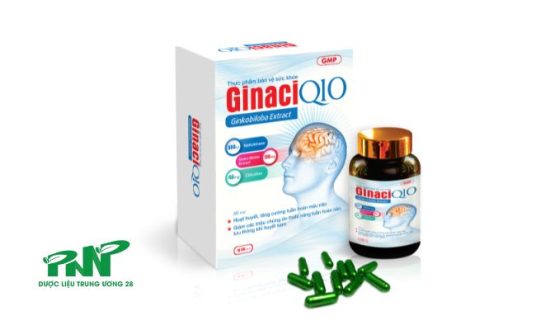- Your cart is empty
- Continue Shopping

Đã có 3 trẻ tử vong vì bệnh sởi tại TP.HCM
Số ca bệnh sởi đang tăng nhanh tại TP.HCM. Từ năm 2021 đến năm 2023, cả TP chỉ có một ca xét nghiệm dương tính
Currently, cerebral circulatory insufficiency is becoming more and more common. The number of infected people is not only seen in middle age, but tends to be younger. Finding out and early detection of cerebral circulatory insufficiency is very important so that it can be treated promptly, quickly reduce symptoms and prevent any risks.
Mục lục
ToggleCerebral circulatory insufficiency is a disease caused by lack of blood supply to the brain, reducing the supply of nutrients and oxygen to the brain, making brain neurons not have enough energy to function, thereby affecting the brain. functional activity of the brain.
People prone to cerebral circulatory insufficiency are middle-aged and older, especially in intellectual workers and the elderly. However, the incidence of cerebral circulatory insufficiency is getting younger and younger, so the rate of cerebral ischemia is very high.

Cerebral circulatory insufficiency can be caused by many causes, of which the main ones are:
In addition to the above causes, there are many risk factors leading to cerebral circulatory insufficiency such as obesity, diabetes, people with an unhealthy lifestyle, sedentary, staying up late, lack of sleep and Those who often experience pressure in life are also at high risk of cerebral circulatory insufficiency.

Depending on the cause and location of the injury, cerebral circulatory insufficiency will have different symptoms. However, typical symptoms are:

The diagnosis of cerebral circulatory insufficiency is based on symptoms on clinical examination and a number of other laboratory investigations such as:
Depending on the cause and severity of the cerebral circulatory insufficiency, your doctor will recommend a variety of treatments, including medication or surgical intervention.
To improve symptoms due to cerebral circulatory insufficiency, doctors often prescribe a number of drugs including:
Usually indicated in patients at risk of developing cerebrovascular events, most commonly at risk of ischemic stroke. Surgical methods usually focus on two large arteries that bring blood to the brain, the carotid artery and the vertebral artery - basilar. Depending on the location of the impact, the degree of influence that the doctor will appoint the appropriate surgical method for each case.
In order not to have to face dangerous complications of the disease, limit side effects when taking long-term western medicine, medical experts recommend that patients should use more specialized complementary products for the brain, overcome all problems caused by cerebral circulatory insufficiency.
One of the outstanding products on the market that can be used every day is TPBVSK Ginaci Q10 With ingredients including: Nattokinase, Ginkgo Biloba, Coenzyme Q10, Citicoline, Magnesium, Iron, Vitamin B6 to support blood activity and enhance cerebral blood circulation. In addition, the product also helps to reduce symptoms caused by cerebral circulatory insufficiency, poor blood circulation, headaches, insomnia, memory impairment, neck pain, numbness in the limbs.

Hopefully, through the above article, you have a good understanding of cerebral circulatory insufficiency and its symptoms so that you can take timely intervention measures. If you have any questions about cerebral circulatory insufficiency, please leave a comment below or call the toll free hotline 1800.64.68.66 for advice as soon as possible.
Reference source: https://www.ncbi.nlm.nih.gov/pmc/articles/PMC6489997/


Số ca bệnh sởi đang tăng nhanh tại TP.HCM. Từ năm 2021 đến năm 2023, cả TP chỉ có một ca xét nghiệm dương tính

Thực trạng mắc bệnh xương khớp ngày càng phổ biến và có xu hướng trẻ hóa nhiều hơn. Trong đó, các bệnh lý như thoái

Não bộ đóng vai trò vô cùng quan trọng, chi phối mọi hoạt động sống trong cơ thể. Tuy nhiên, ít ai biết rằng, tổn

Mặc dù đã có nhiều cảnh báo về việc sử dụng thuốc không rõ nguồn gốc, nhưng thời gian gần đây, Bệnh viện Bệnh Nhiệt